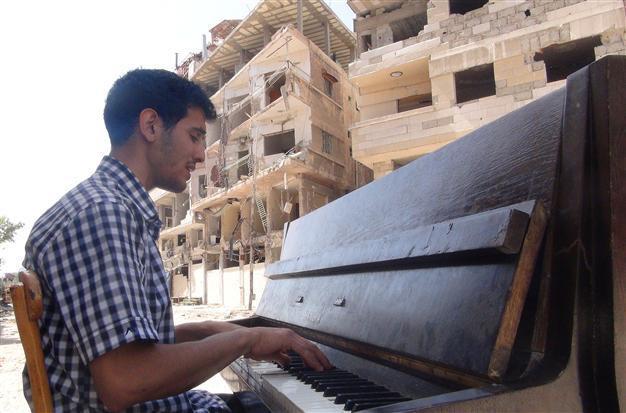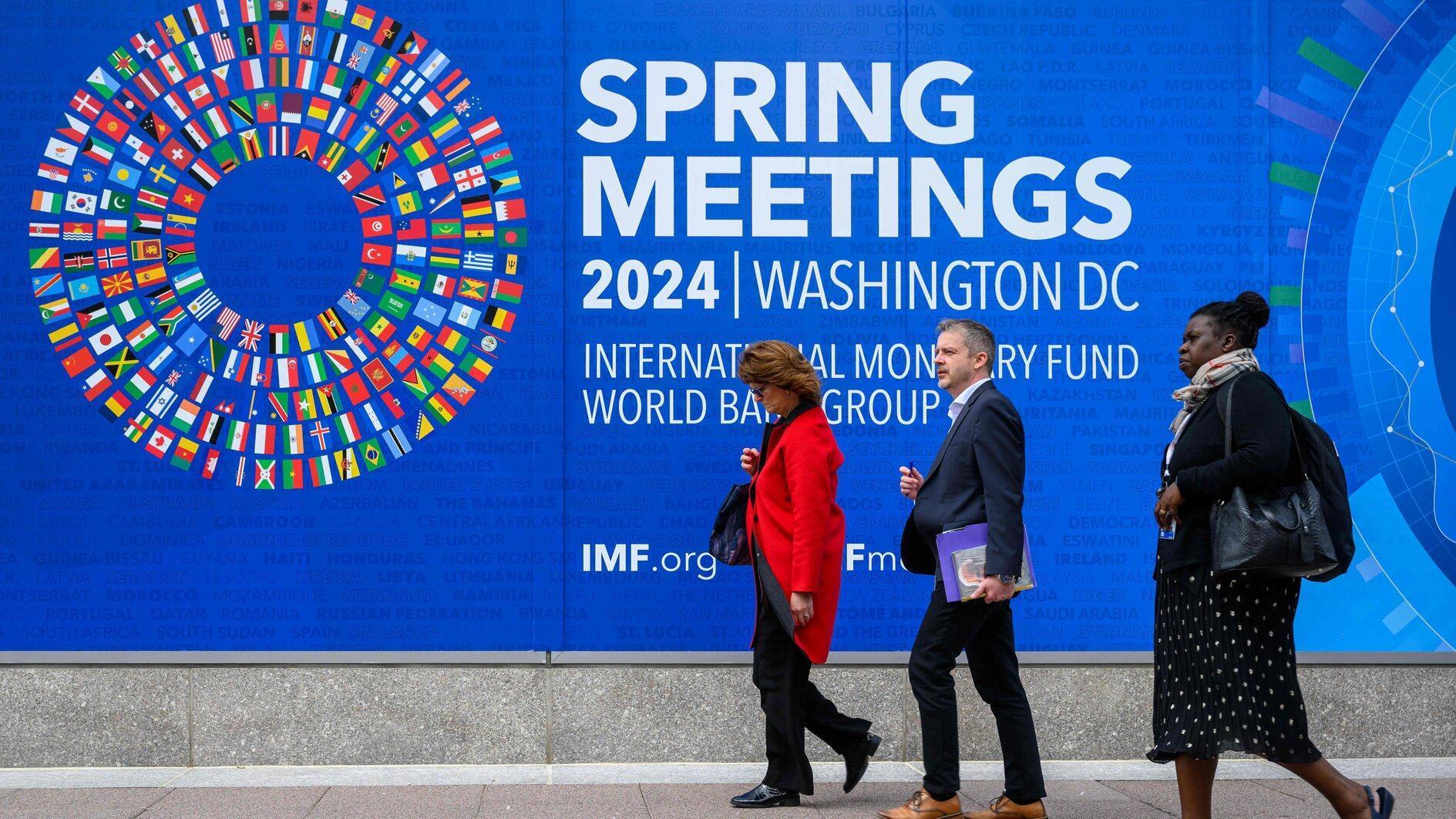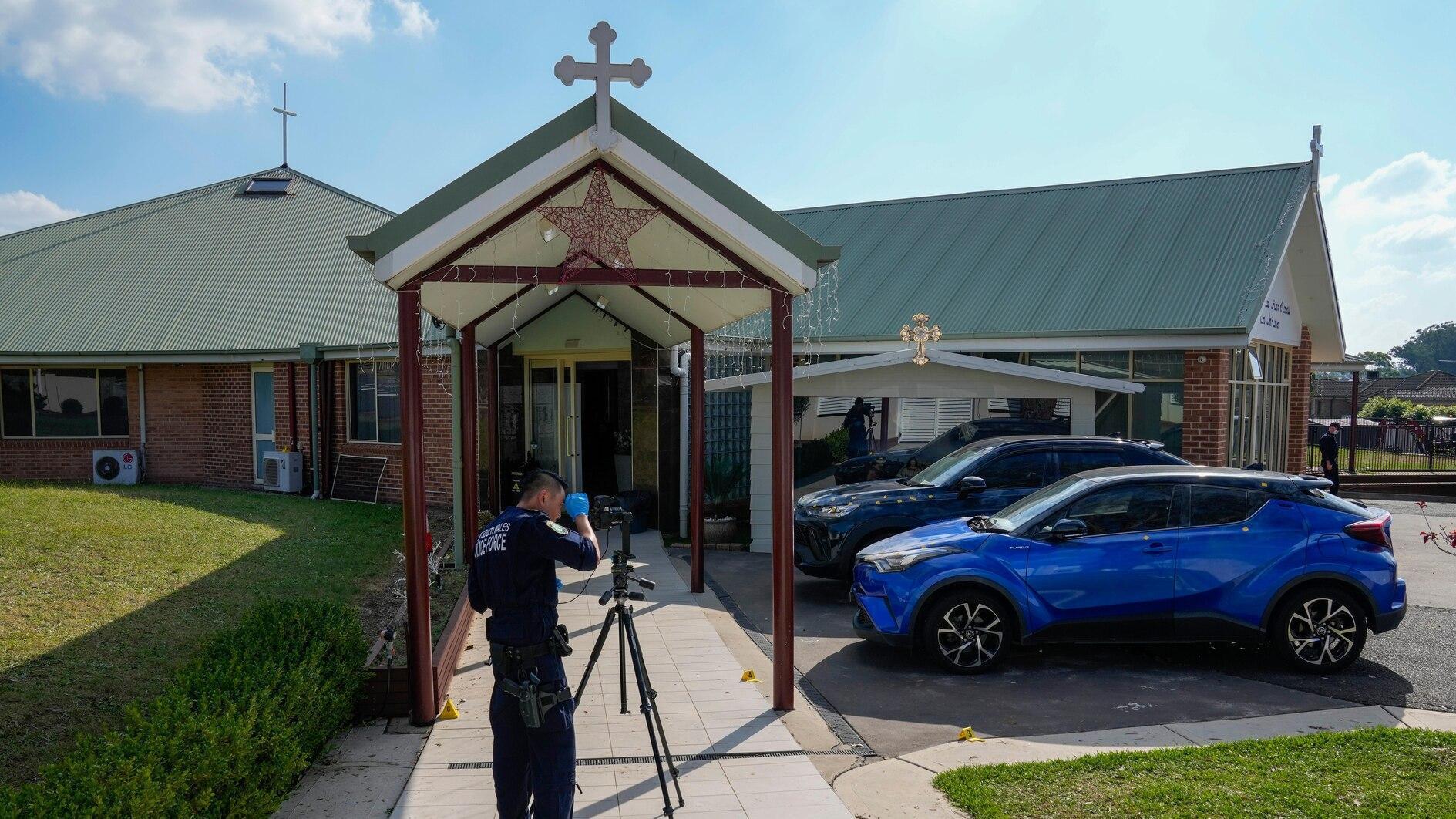In Syria's starving Yarmuk camp, a pianist conjures hope
Rana Moussaoui BEIRUT -Agence France-Presse

Ayham al-Ahmed, a resident of Damascus' Yarmuk Palestinian refugee camp, plays the piano in the middle of the street near destroyed buildings, on June 26. AFP Photo / Rami al-Sayed
In the Yarmuk camp in southern Damascus, the notes escape a piano set in a scene of destruction and the children in Ayham al-Ahmed's little group sing of hunger and suffering.The music in the Syrian camp, under siege for a year and wracked by violence, seems at odd with the brutality that is all around.
It is almost reminiscent of the story of Wladyslaw Szpilman, a Polish pianist in the World War II, immortalised in the film "The Pianist" directed by Roman Polanski. "I loved that movie, which I saw in 2007, but I never thought that I would come to embody such a character," Ahmed told AFP, contacted by the Internet.
In photos posted on Facebook, the 26-year-old plays the piano in streets littered with debris, his face growing thinner with each passing month.
Once a thriving neighbourhood home to 150,000 Palestinian refugees and Syrians, Yarmuk has been reduced to a shell of its former self in the conflict that began in March 2011.
Caught in fighting between rebels and the regime, just 18,000 residents remain, suffering under a government siege that has caused the deaths of some 200 people in a year, including 128 of hunger. "I weighed 70 kilos between the siege, today I weigh 45," says Ahmed.
Since the end of June, when a truce was reached between the regime and rebels, with approval from Palestinian factions in the camp, the siege has been loosened slightly. But the privations in the camp were so serious that Ahmed, who loves to play Haydn and eastern jazz, evacuated his wife and two-year-old son, both suffering severe anaemia.
Living without bullets
Under the circumstances, Ahmed's creation of the "Youth Troupe of Yarmuk" in 2013 was a rare ray of light. "It was important to emerge from the despair we were living in," he says.
When he plays, he says, he feels that "there is once again something good in this life." Ayham's father, 62-year-old Ahmed al-Ahmed, is a blind violinist who played with the troupe until rheumatism exacerbated by malnutrition forced him to quit.
An admirer of Bach, as well as the greats of Arabic music, Ahmed is proud of his son, who composes music for songs written by amateur poets in the camp and refugees abroad.
"Music is a universal language, a passport to reach that other," the elder Ahmed says. "I want to put a smile on the faces of children," says Ayhem al-Ahmed, who named his children's choir "Buds of Yarmuk."
One song about those in exile from the camp, called "Brother, we miss you in Yarmuk", spread like wildfire on social networks. It describes the story of Syrians who have been displaced from their homes or become refugees - some nine million citizens in all.
"You have been gone for a long time... you who are in Beirut, in Turkey, we miss you," the children sing.
"When the children sing, I feel that there is hope again," says Ahmed, who dreams of one day playing in a professional orchestra. In the deserted streets of the camp, opinion about Ahmed's project is sometimes divided.
"Some people say to me 'People are dying and you're making music,'" Ahmed says. But others, like resident Abu Hamza, say the troupe expresses the camp's suffering and helps lift spirits.
"When we hear them, we are able to forget our misfortune a little bit," he told AFP via the Internet. In the middle of a raging civil war that began as an uprising against President Bashar al-Assad, Ahmed remains non-partisan. "Our message is living without bullets," he says.
One song is dedicated to the "martyrs of hunger", those who have starved to death under the tight siege on the camp. "I drink distress in the morning, I wait for death in the evening," the plaintive lyrics go.
Moving his piano from street to street with his friends to play, Ahmed incurred the wrath of extremists who had taken up positions in the camp, before withdrawing under the truce.
"For them it is haram (religiously prohibited). They threatened to break my fingers," Ahmed says, "so I played early in the morning while they slept." Of late, Ahmed has composed songs about the situation in Gaza, but Yarmuk remains at the heart of his music, which often mixes classical music and jazz.
Separated from his family, Ahmed does not want to leave Yarmuk, and says Syrians write to him from abroad to encourage his music."They write 'when you play it gives us hope that we'll return'," he says.
And any doubts about his frame of mind are dispelled by his Facebook status update, which says it all: "Feeling optimistic." You can click to visit Yarmuk youth group Facebook page.
















